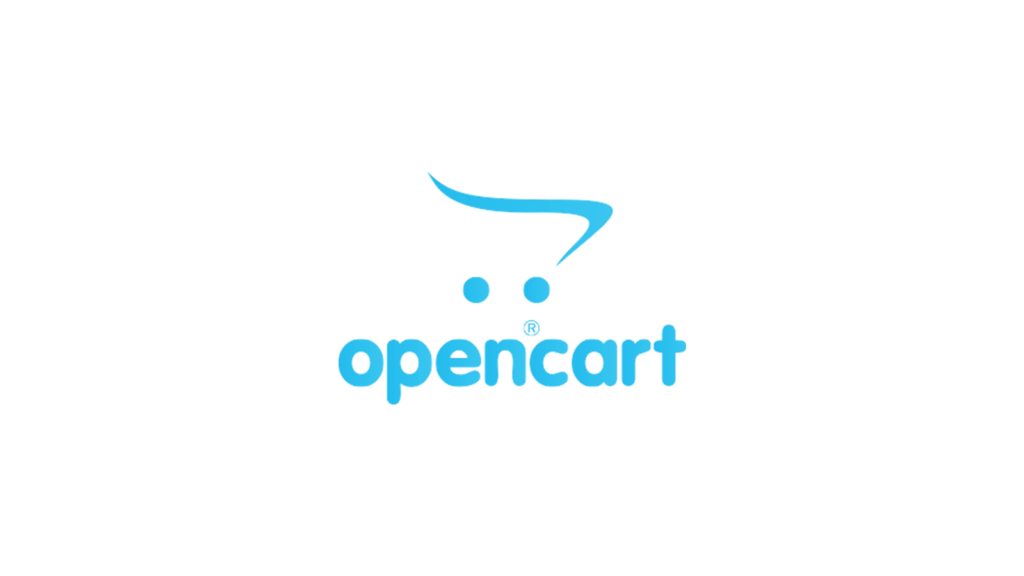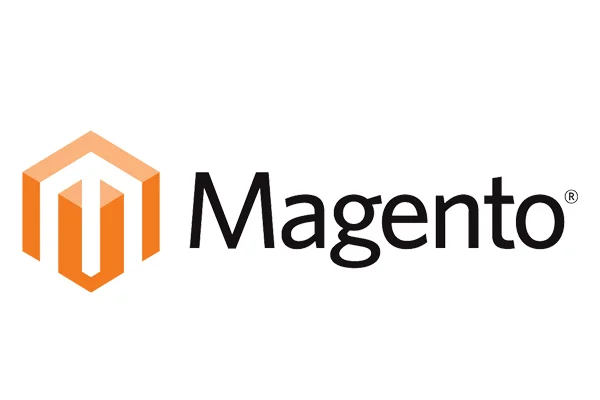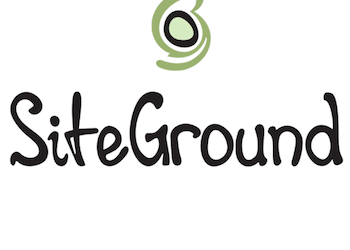In the vast landscape of e-commerce platforms, Magento has long been a heavyweight champion, boasting an array of features that make it a go-to choice for many businesses. However, as the digital realm evolves, so do the needs of online merchants. In this article, we delve into the intricacies of Magento, exploring its features, limitations, and what sets it apart. But beyond that, we’ll uncover the growing necessity to seek a Magento alternative and present a comprehensive guide to viable options.
Features And Limitations Of Magento Alternatives

As we navigate through the diverse landscape of e-commerce platforms, it’s crucial to delve into the features and limitations of Magento alternatives. Understanding the strengths and potential challenges of these alternatives is paramount for businesses seeking the perfect fit for their online ventures.
Features:
- Customizable Templates: Magento offers a wide array of customizable templates, allowing businesses to create a unique and visually appealing online presence.
- Robust Security Measures: The platform prioritizes security, providing features like SSL certification, secure payment gateways, and other measures to protect sensitive customer data.
- Powerful Inventory Management: With a robust inventory management system, Magento enables businesses to efficiently track and manage their product catalog, ensuring accuracy and minimizing errors.
- Scalability: Magento is designed to grow with businesses. Its scalability allows for expansion without compromising performance, making it suitable for both small startups and large enterprises.
- Extensive Community Support: The platform boasts a vibrant community of developers, contributing to a wealth of plugins, extensions, and community-driven solutions for common challenges.
Limitations:
- Complex Architecture: The intricate architecture of Magento can be overwhelming, particularly for small businesses. This complexity may result in increased development costs and longer deployment times.
- Resource-Intensive Nature: Magento’s resource-intensive requirements may pose challenges for businesses with limited hosting capabilities, potentially leading to performance issues and increased hosting expenses.
- Steep Learning Curve: The platform’s advanced features come at the cost of a steep learning curve. Training staff to effectively utilize Magento may require significant time and resources.
- Higher Initial Setup Costs: Setting up a Magento-based store can be cost-prohibitive for some businesses due to higher initial expenses associated with customization, development, and infrastructure.
- Limited Native Marketing Tools: While Magento is feature-rich, it may lack some native marketing tools. Businesses might need to integrate additional solutions for comprehensive marketing strategies.
What Sets Magento Alternative Apart ?
In the ever-expanding realm of e-commerce solutions, Magento alternatives distinguish themselves through various unique attributes, setting them apart from the crowd. Whether it’s the user-friendly simplicity, open-source flexibility, or comprehensive, all-in-one features, these alternatives bring distinctive qualities that cater to the evolving needs of businesses in the digital landscape. Let’s delve into what makes each Magento alternative stand out in the competitive e-commerce arena.
Why Seek a Magento Alternative?

As businesses forge ahead in the dynamic digital landscape, the quest for a Magento alternative becomes not just a choice but a strategic imperative. Let’s unravel the driving forces behind this pursuit, exploring the adaptability to evolving market demands, the imperative for agility and cost-effectiveness, the need for flexibility and scalability, and the challenges of navigating the complexities of Magento.
1. Adaptability to Evolving Market Demands
In a landscape where consumer preferences and technological advancements constantly evolve, businesses find themselves needing adaptable e-commerce solutions. The quest for a Magento alternative is fueled by the desire to align with dynamic market demands seamlessly. Whether it’s adjusting to new consumer behaviors or integrating the latest technologies, businesses are seeking platforms that can pivot swiftly, ensuring they stay relevant and competitive in the ever-changing digital marketplace.
2. Agility and Cost-Effectiveness
The modern business environment values agility and cost-effectiveness more than ever. Seeking a Magento alternative is a strategic move to streamline operations and reduce financial burdens. Businesses aim to navigate their digital endeavors with platforms that offer nimble solutions without the intricacies and associated costs of traditional e-commerce solutions. The pursuit of agility and cost-effectiveness is a testament to the evolving mindset of businesses in optimizing their online presence.
3. Flexibility and Scalability Needs
Flexibility and scalability have become paramount considerations for businesses charting their growth trajectories. Magento alternatives are sought after to fulfill the increasing need for platforms that provide not only the flexibility to adapt to unique business requirements but also the scalability to support growth seamlessly. As businesses expand and diversify, the search for alternatives is driven by the desire to find platforms that can grow alongside them, offering a robust foundation for sustained success.
4. Navigating the Complexities of Magento
The complexities inherent in Magento, from its intricate architecture to resource-intensive nature, drive businesses to explore alternative e-commerce solutions. Navigating the learning curve and addressing the challenges posed by Magento’s setup costs and development intricacies can be daunting for some enterprises. The quest for alternatives is motivated by a desire for user-friendly platforms that maintain efficiency without sacrificing functionality. Businesses seek solutions that simplify their e-commerce journey, allowing them to focus on growth rather than wrestling with complex technicalities.
Commonly Used Magento Alternatives For E-Commerce Excellence

As we embark on an in-depth exploration of commonly used Magento alternatives, each distinguished by unique features and capabilities, we delve into the realm of e-commerce excellence to discover platforms that not only serve as alternatives to Magento but redefine the standards of online business operations.
1. Shopify: Streamlined and User-Friendly
In the ever-evolving world of e-commerce, Shopify has emerged as a true contender and a sought-after Magento alternative. Its streamlined, user-friendly interface provides an optimal environment, especially for small to medium-sized businesses aiming for a hassle-free online store setup. With an extensive array of customizable templates, Shopify allows merchants to express their brand identity effortlessly. What sets Shopify apart is its robust support system, ensuring that businesses, regardless of their size, can swiftly establish and manage their online presence without grappling with the intricacies that might accompany a Magento setup. The simplicity and intuitiveness of Shopify make it a strategic choice for those seeking a smooth transition from Magento or starting their e-commerce journey.
2. WooCommerce: Seamless Integration with WordPress
For businesses deeply ingrained in the WordPress ecosystem, WooCommerce presents itself as an organic Magento alternative. Its seamless integration with WordPress, the world’s most popular content management system, offers a familiar interface to users already accustomed to the WordPress environment. Beyond integration, WooCommerce provides extensive customization options through its plugin architecture, allowing businesses to tailor their online stores with precision. The platform leverages the vast resources and community-driven support inherent in the WordPress community, making it a strategic Magento alternative for those aiming for a harmonious blend of e-commerce functionality within their existing WordPress framework.
3. BigCommerce: A Comprehensive Solution
BigCommerce stands out as a comprehensive e-commerce solution and a robust alternative to Magento. What sets it apart is its all-in-one approach, catering to a wide spectrum of e-commerce needs. From built-in marketing tools to a user-friendly interface, BigCommerce provides businesses with the tools they need for efficient and convenient online store management. The platform’s commitment to offering a holistic e-commerce solution distinguishes it as a strategic Magento alternative for those who seek an integrated and feature-rich platform without the complexities often associated with Magento setups.
4. Wix eCommerce: Drag-and-Drop Simplicity
Wix eCommerce prides itself on simplicity without compromising functionality, making it an attractive Magento alternative for businesses prioritizing a user-friendly experience. With its intuitive drag-and-drop website builder, Wix empowers users to create visually stunning online stores effortlessly. The platform goes beyond mere simplicity, offering a diverse range of templates and apps that enhance customization options. Wix eCommerce, with its emphasis on ease of use and design flexibility, provides businesses with a user-friendly yet powerful alternative to Magento, making the process of establishing and managing an online store both accessible and enjoyable.
5. OpenCart: Open-Source Flexibility
OpenCart stands out as a cost-effective and open-source Magento alternative, offering businesses flexibility without the hefty price tag. Its user-friendly interface and extensive library of extensions empower businesses to create tailored online stores. What sets OpenCart apart is its open-source nature, allowing for unparalleled customization and adaptability. The platform’s active community further enhances its appeal, ensuring ongoing support and updates, making OpenCart an enticing choice for businesses seeking an open-source solution that doesn’t compromise on features or functionality.
6. PrestaShop: Feature-Rich and Open-Source
As an open-source alternative to Magento, PrestaShop distinguishes itself with a feature-rich environment. Its modular architecture allows businesses to add functionalities as needed, providing scalability without compromising on performance. What sets PrestaShop apart is its commitment to being open-source, allowing businesses to harness the power of community-driven development. The platform’s vibrant community contributes to its appeal, ensuring businesses have access to a wealth of plugins, themes, and ongoing support. PrestaShop stands out as a Magento alternative that offers feature diversity while maintaining the advantages of an open-source platform.
7. Square Online: Integration with In-Person Sales
Square Online caters to businesses with a unique blend of online and in-person sales, offering seamless integration between the two channels. What sets it apart is its ability to synchronize online and offline inventory, making it an excellent choice for those with brick-and-mortar stores seeking a Magento alternative that effortlessly bridges the gap between physical and digital commerce. Square Online’s focus on providing a unified solution for both online and in-person sales channels distinguishes it, offering businesses a comprehensive platform for managing their diverse retail needs.
8. 3dcart: Feature-Loaded E-Commerce
3dcart positions itself as an all-in-one e-commerce solution, catering to a diverse range of businesses. What sets it apart is its feature-loaded environment, offering unlimited product listings, secure hosting, and a user-friendly interface. The platform competes strongly as a Magento alternative, providing businesses with a comprehensive solution for online sales. Its commitment to offering a feature-rich experience distinguishes 3dcart, making it a compelling choice for businesses seeking a robust alternative to Magento that covers all aspects of online store management.
9. Volusion: Tailored for Scalability
Volusion distinguishes itself as a Magento alternative with scalability at its core, making it an ideal choice for businesses with substantial growth plans. What sets it apart is its focus on performance, ease of use, and a commitment to security. Volusion offers a platform that can evolve with businesses over time, accommodating growth seamlessly. Its user-friendly design and dedication to providing a scalable solution make Volusion a compelling choice for those aiming for substantial expansion in the e-commerce realm.
10. Squarespace: Design-Centric E-Commerce
For businesses with a keen eye for design, Squarespace presents itself as a Magento alternative that seamlessly blends visually stunning templates with robust e-commerce functionality. What sets Squarespace apart is its emphasis on design-centric e-commerce, allowing businesses to create an online presence that aligns seamlessly with their brand aesthetics. The platform not only prioritizes aesthetics but also ensures functionality, making Squarespace a distinctive choice for businesses seeking a Magento alternative that seamlessly combines visual appeal with robust online store management.
Factors To Consider While Choosing The Perfect Magento Alternative:

As we navigate the intricate landscape of e-commerce platforms, these critical considerations become the compass guiding us towards the ideal Magento alternative, ensuring a seamless alignment with your business objectives, fostering growth, and establishing a secure and efficient foundation for your flourishing online venture.
1. Scalability and Future Growth
In the dynamic landscape of e-commerce, the scalability of a Magento alternative plays a pivotal role in determining its suitability for your business. Assess whether the platform is equipped to seamlessly grow alongside your business, accommodating expanding product catalogs, increasing website traffic, and evolving market demands. A scalable solution ensures that your chosen e-commerce platform remains a robust foundation, adapting effortlessly to the changing needs of your business as it progresses along its growth trajectory.
2. Ease of Use and Customization
The user-friendliness of an e-commerce platform is a critical consideration, impacting the daily operations of your team. Delve into the learning curve associated with each Magento alternative, ensuring that it aligns with the skill set of your team members. Equally important is the platform’s customization capabilities. Look for a solution that strikes a balance between simplicity and flexibility, allowing for intuitive onboarding while providing ample room for customization. A platform that empowers your team to tailor the online store to your brand’s unique identity and business goals ensures a seamless and personalized user experience.
3. Integration Capabilities
The ability of a Magento alternative to integrate seamlessly with existing systems and external tools is fundamental for operational efficiency. Evaluate the integration capabilities of each platform, considering how well it collaborates with essential business tools such as accounting software, CRM systems, or marketing automation tools. A well-connected digital ecosystem enhances workflow processes, streamlining operations and promoting a cohesive business strategy. Choose a Magento alternative with robust integration features, positioning your business to leverage the synergies of a connected and interoperable tech stack.
4. Cost Considerations
Beyond the initial setup costs, a thorough examination of the total cost of ownership is imperative when selecting a Magento alternative. Scrutinize ongoing expenses, encompassing transaction fees, hosting costs, and potential additional charges for advanced features. Transparent pricing structures are essential to avoid unforeseen financial burdens and ensure that the chosen Magento alternative aligns harmoniously with your budget constraints. Balancing cost considerations with the desired functionalities guarantees a sustainable and cost-effective investment in your e-commerce infrastructure.
5. Support and Community
The support infrastructure and community engagement surrounding a Magento alternative significantly contribute to the overall user experience. Assess the responsiveness of the support team, available communication channels, and the depth of support documentation. Equally crucial is the vibrancy of the user community associated with each platform. A thriving community not only reflects the popularity of the alternative but also serves as a valuable resource for user-generated content, forums, and solutions. Opt for a Magento alternative with a responsive support team and an engaged community, ensuring a reliable and collaborative support ecosystem as you navigate the intricacies of e-commerce operations.
Conclusion: Navigating the E-Commerce Landscape
In the ever-evolving world of e-commerce, the quest for the perfect platform is a strategic endeavor. Magento, with its strengths and limitations, has long been a stalwart choice. However, the changing dynamics of the digital landscape necessitate a closer look at alternatives that offer scalability, flexibility, and seamless integration.
Exploring Magento alternatives is not just a trend; it’s a strategic move to align your business with the evolving needs of the market. Whether it’s the user-friendly simplicity of Shopify, the open-source flexibility of OpenCart, or the all-in-one solution provided by BigCommerce, there’s a myriad of options to suit various business needs.
As you embark on the journey of finding the ideal Magento alternative, consider factors like scalability, ease of use, integration capabilities, cost, and the support ecosystem. The e-commerce landscape is vast, and with the right alternative, your business can not only keep pace but thrive in the digital realm.









